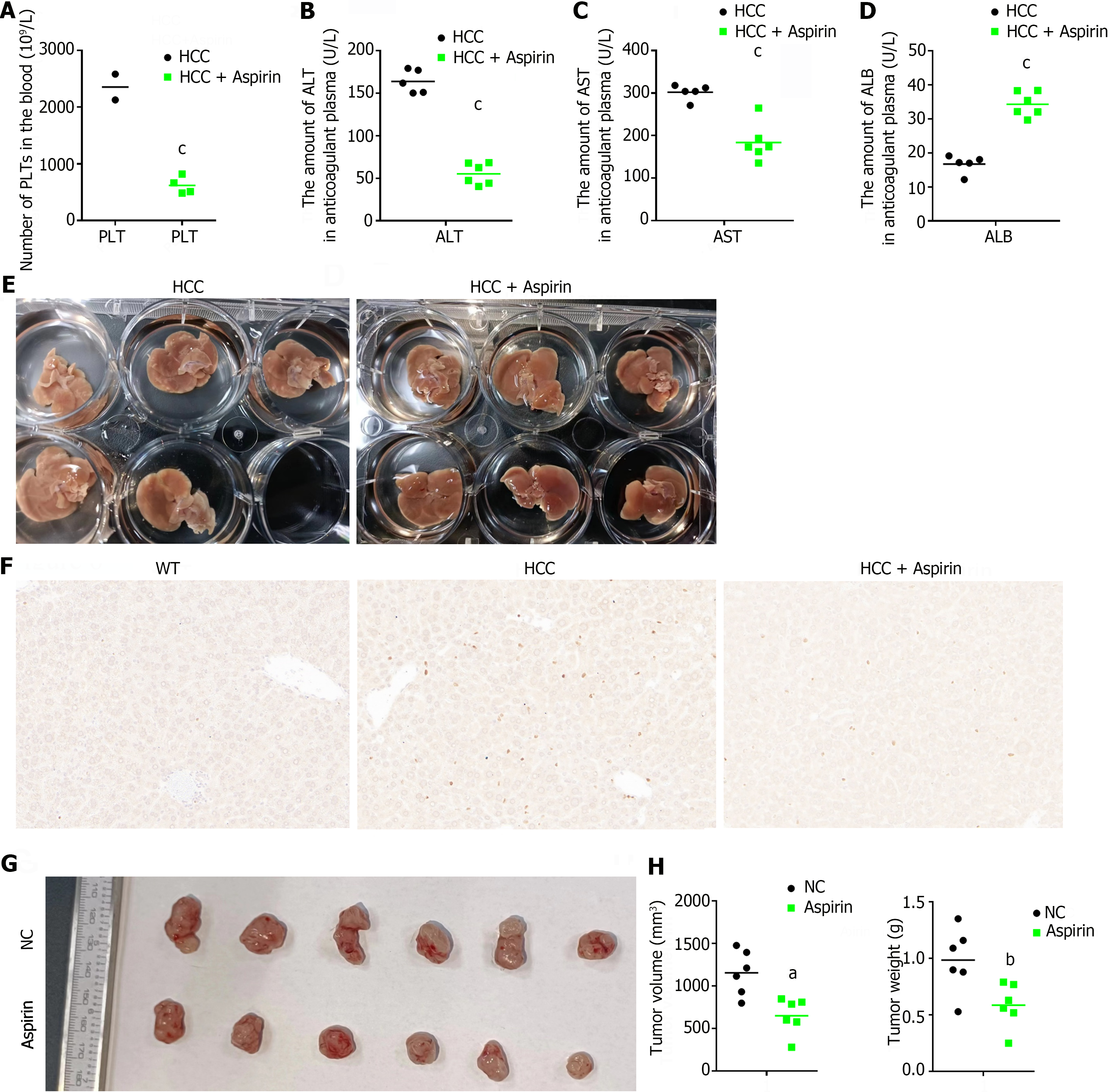Copyright
©The Author(s) 2024.
World J Gastrointest Oncol. Jun 15, 2024; 16(6): 2742-2756
Published online Jun 15, 2024. doi: 10.4251/wjgo.v16.i6.2742
Published online Jun 15, 2024. doi: 10.4251/wjgo.v16.i6.2742
Figure 6 Aspirin can inhibit the progression of hepatocellular carcinoma by inhibiting platelets.
A: Routine blood was used to detect the platelet content in the whole blood of mice in different treatment groups, and statistical analysis was performed; B-D: Blood biochemistry was used to detect alanine transaminase, aspartate transaminase, and albumin in the anticoagulated plasma of mice in different treatment groups, and statistical analysis was performed; E: Macroscopic map of liver tissue from hepatocellular carcinoma mice in different treatment groups; F: Immunohistochemistry was used to detect the content of Ki67 (antigen identified by monoclonal antibody Ki67) in liver tissues from the different treatment groups; G and H: In vivo experiments were performed to detect the effect of aspirin on tumor growth, and statistical analysis was performed. The figure shows the mean ± SD of the experimental results, with asterisks denoting significant differences between the two groups (aP < 0.05, bP < 0.01, cP < 0.001). NC: Negative control; WT: Wild-type; PLT: Platelets; HCC: Hepatocellular carcinoma; ALT: Alanine transaminase; AST: Aspartate transaminase; ALB: Albumin.
- Citation: Zhao LJ, Wang ZY, Liu WT, Yu LL, Qi HN, Ren J, Zhang CG. Aspirin suppresses hepatocellular carcinoma progression by inhibiting platelet activity. World J Gastrointest Oncol 2024; 16(6): 2742-2756
- URL: https://www.wjgnet.com/1948-5204/full/v16/i6/2742.htm
- DOI: https://dx.doi.org/10.4251/wjgo.v16.i6.2742









